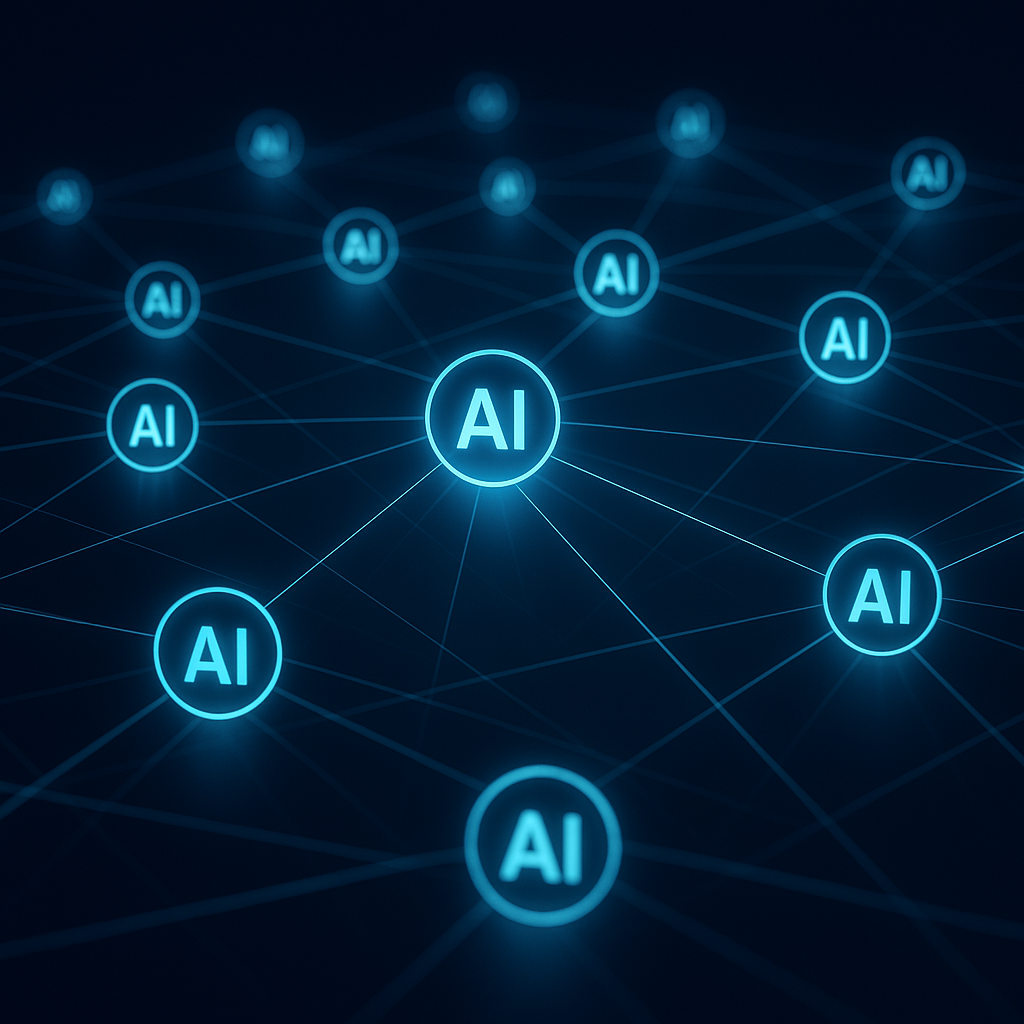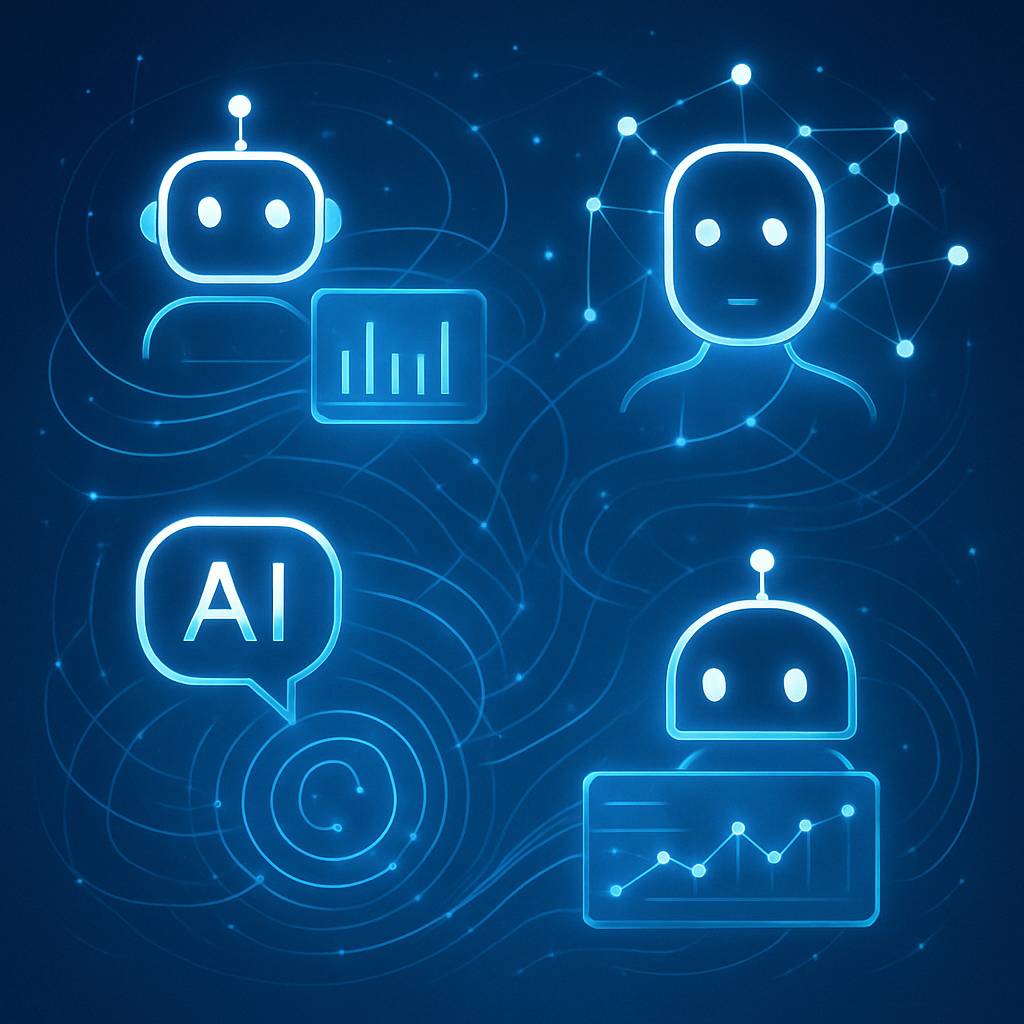
Autonomous Computer Agents: Revolutionizing AI Applications Today
Understanding Autonomous Computer Agents in AI
At the core of many advanced artificial intelligence (AI) systems lies the computer agent in ai—autonomous entities designed to perform tasks, perceive their environments, and act without human intervention. These computer agents extend beyond mere automated scripts; they are imbued with abilities such as learning, reasoning, and adapting, laying the foundation for revolutionary AI applications.
In 2025, autonomous computer agents have matured significantly, evolving into dynamic actors capable of navigating complex and uncertain environments. They serve as independent decision-makers, collaborating or competing with other agents, enhancing AI's effectiveness across numerous domains.
Key Characteristics Shaping AI's Future
- Autonomy: The ability to operate without direct guidance enables agents to manage tasks from start to finish, ensuring continuous system function.
- Perception: Agents can interpret environmental data from sensors, user inputs, or digital information streams to inform their actions.
- Learning: Leveraging machine learning techniques, autonomous agents adapt behaviors based on experiences, improving over time.
- Collaboration: Multi-agent systems allow agents to work jointly, sharing knowledge and dividing labor efficiently.
- Goal-oriented Behavior: Agents pursue defined objectives, balancing persistence with flexibility to achieve optimal outcomes.
Revolutionary Applications in 2025
1. Intelligent Virtual Assistants Transforming Workflows
Modern virtual assistants transcend simple task execution by acting as autonomous computer agents. For instance, AI-driven project managers coordinate schedules, trigger alerts for pending deadlines, and negotiate resource allocations without manual prompts. These assistants analyze data patterns to proactively optimize workflows, reducing human workload and increasing productivity.
2. Autonomous Cybersecurity Agents
Cyber threats in 2025 demand rapid and intelligent responses. Autonomous agents in cybersecurity monitor network traffic, detect anomalies, and even launch countermeasures without waiting for human approval. Their real-time adaptability has become crucial in defending against sophisticated attacks such as polymorphic malware and zero-day exploits.
3. Smart Manufacturing with Multi-Agent Systems
Factories now deploy teams of autonomous agents embedded in machines, sensors, and robots. These agents coordinate to optimize production lines, troubleshoot faults, and manage supply chains dynamically. For example, an agent detecting a component shortage can trigger reordering and reroute other machines to minimize downtime automatically.
4. Autonomous Agents in Healthcare Diagnostics
In healthcare, computer agents support diagnosis by analyzing medical imaging, patient data, and real-time monitoring inputs. Autonomous diagnostic agents assist clinicians by suggesting treatment plans, flagging emergencies, and optimizing patient care workflows, particularly in managing chronic conditions or critical care settings.
Technical Innovations Fueling Autonomous Agents
The evolution of autonomous computer agents is propelled by several technological breakthroughs:
- Advanced Reinforcement Learning: Agents learn optimal behaviors through reward-based systems, enhancing decision-making in uncertain environments.
- Explainable AI (XAI): Providing transparency in agent decision processes builds trust and supports regulatory compliance.
- Edge Computing Integration: Distributing agent intelligence closer to data sources increases responsiveness and reduces reliance on centralized computation.
- Improved Natural Language Processing: Enhancing communication between agents and humans or other agents broadens applicability and usability.
Challenges in Deploying Autonomous Computer Agents
Despite remarkable progress, deploying autonomous agents at scale presents challenges:
- Ethical Considerations: Decisions made autonomously may have social impacts requiring ethical frameworks and accountability mechanisms.
- Security Risks: Malicious takeover or manipulation of autonomous agents can lead to severe disruptions.
- Complex Coordination: Ensuring cooperation among multiple agents without conflicts demands sophisticated system designs.
- Generalization Limitations: Many agents are domain-specific and struggle to transfer learning across contexts.
The Road Ahead: Autonomous Agents Shaping AI's Horizon
The role of autonomous computer agents in AI applications is rapidly expanding—from individual task automation to orchestrating entire systems. Their growing intelligence, adaptability, and autonomy are not only revolutionizing existing industries but also unlocking entirely new possibilities.
Looking towards the near future, interdisciplinary research combining AI, robotics, ethics, and human-computer interaction will further refine these agents' capabilities and societal integration. Autonomous computer agents are poised to become the architects of intelligent environments, personalized services, and self-managing digital ecosystems that define AI's next chapter.
As this transformative journey unfolds in 2025 and beyond, understanding and harnessing the power of autonomous computer agents will be essential for innovation across every sector.






